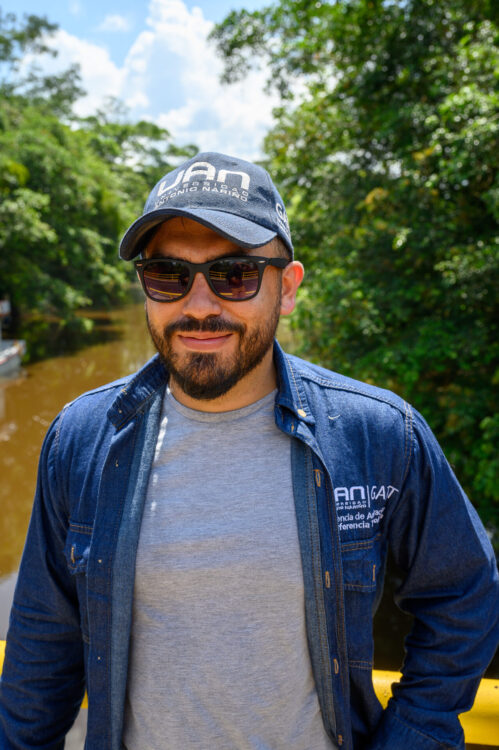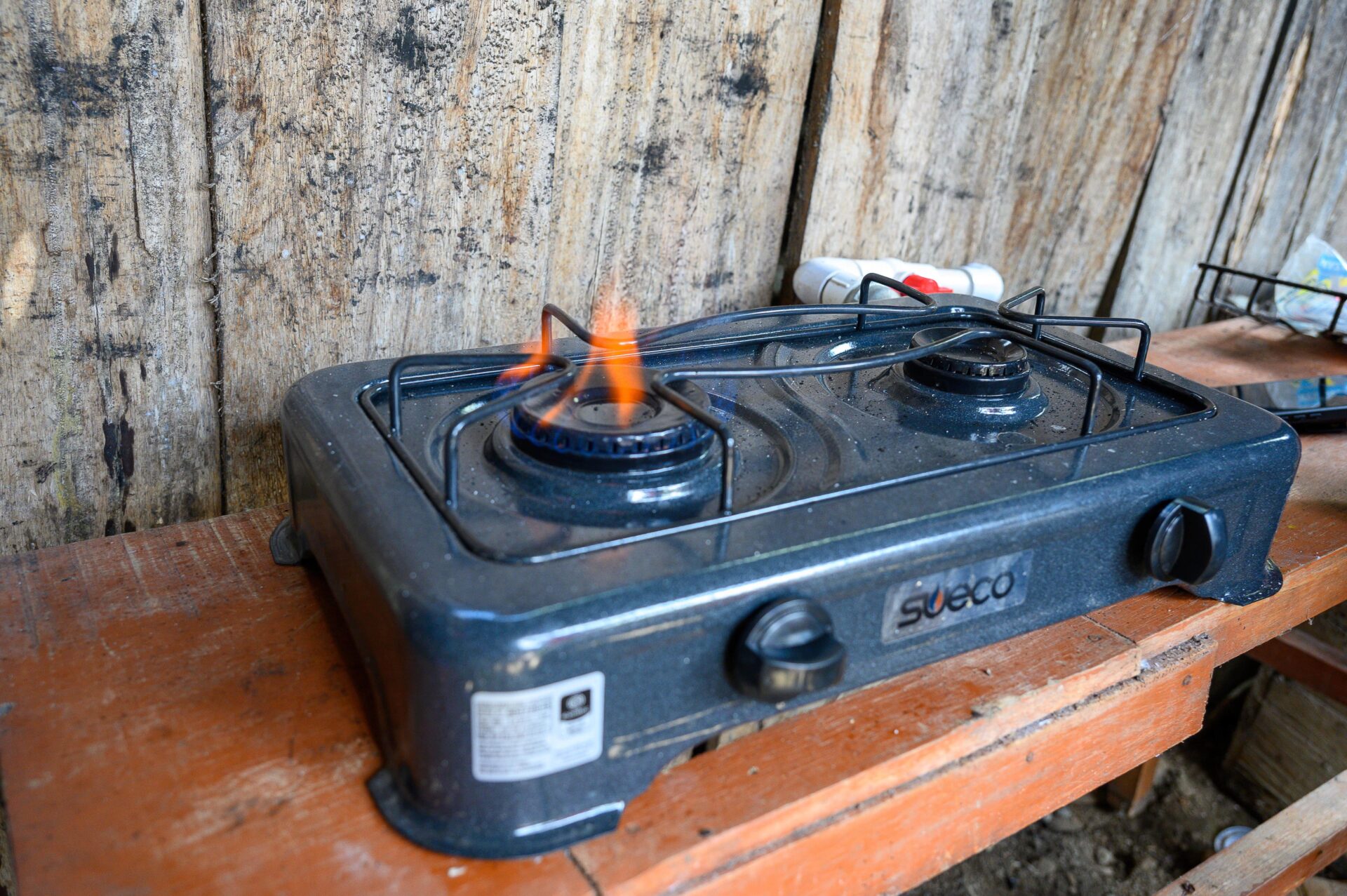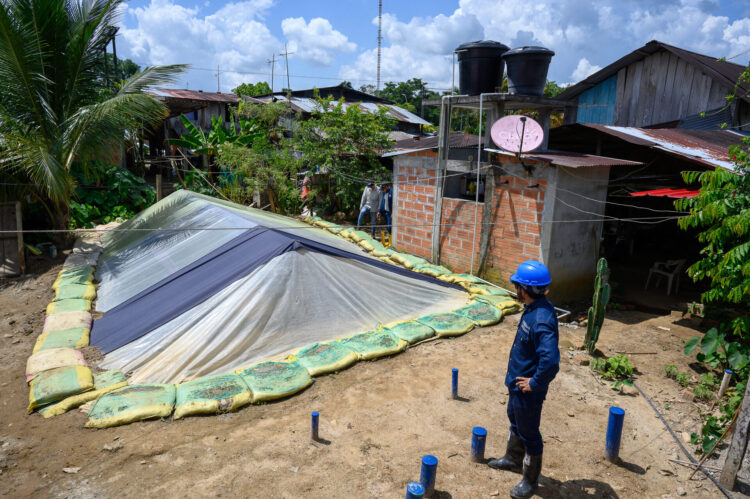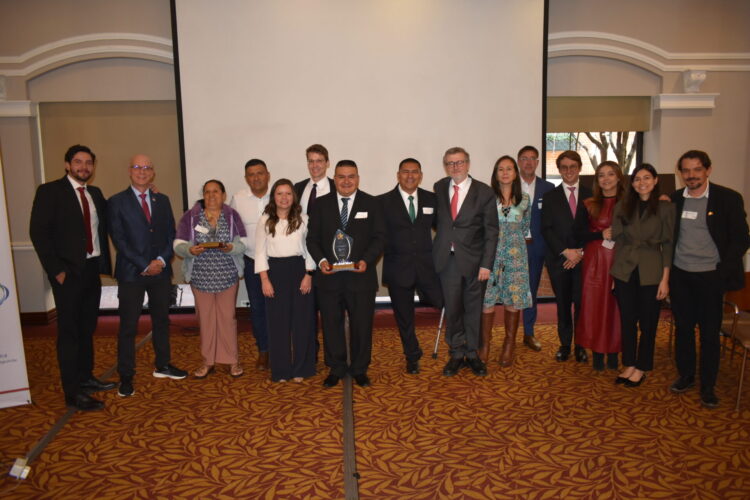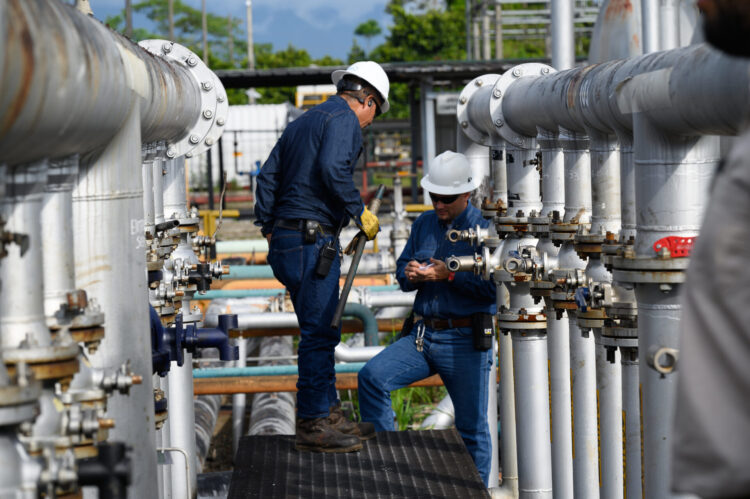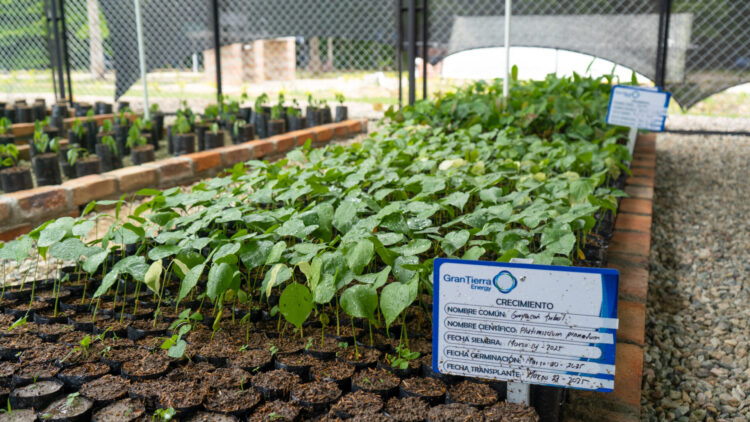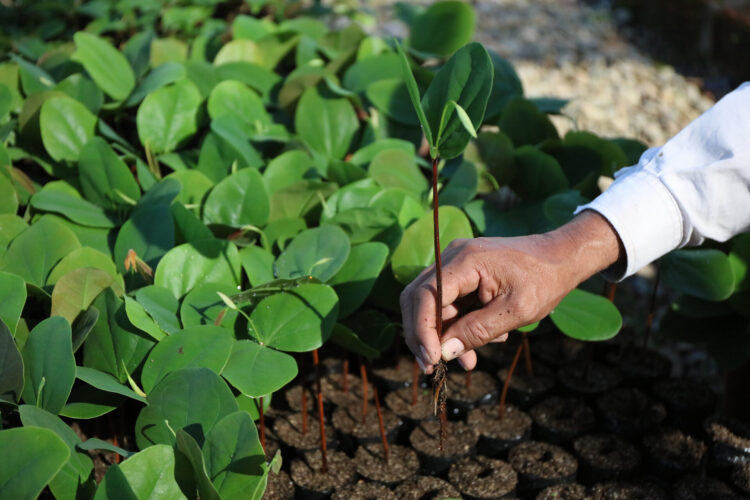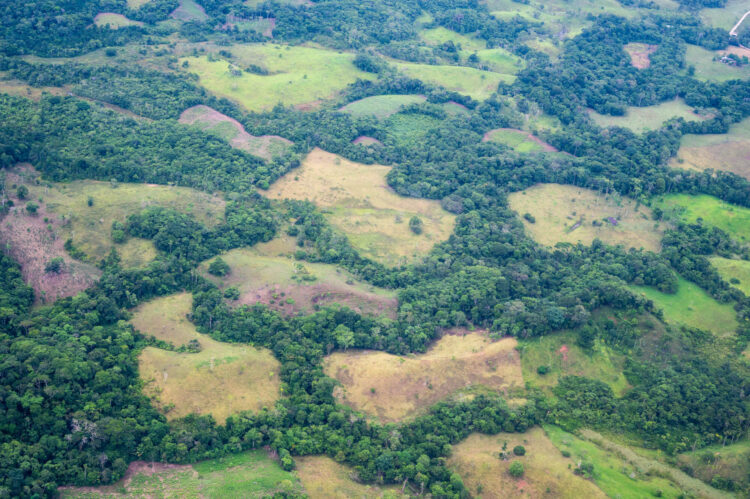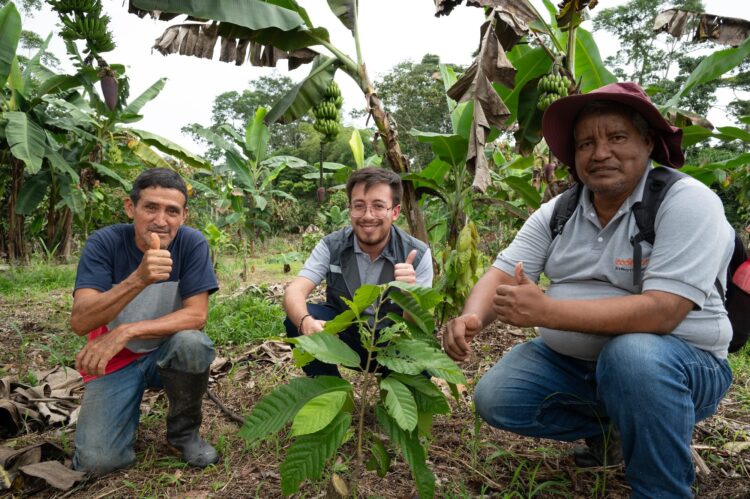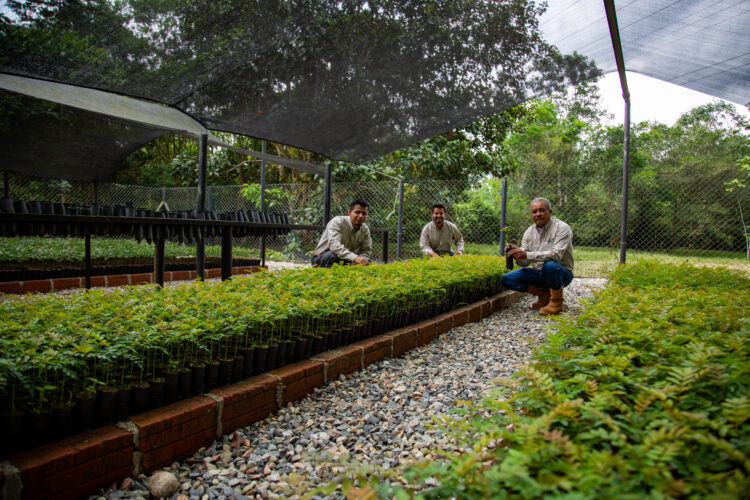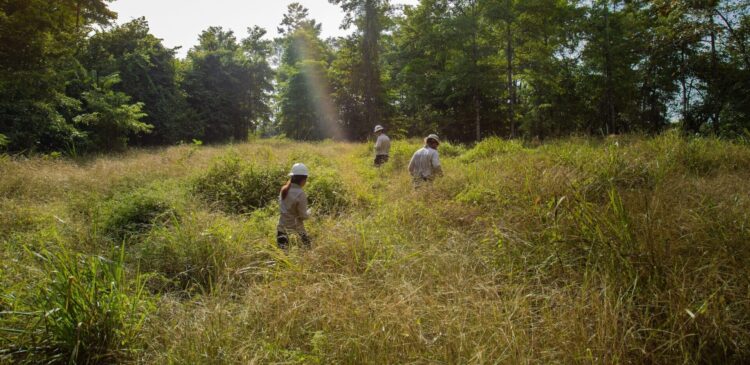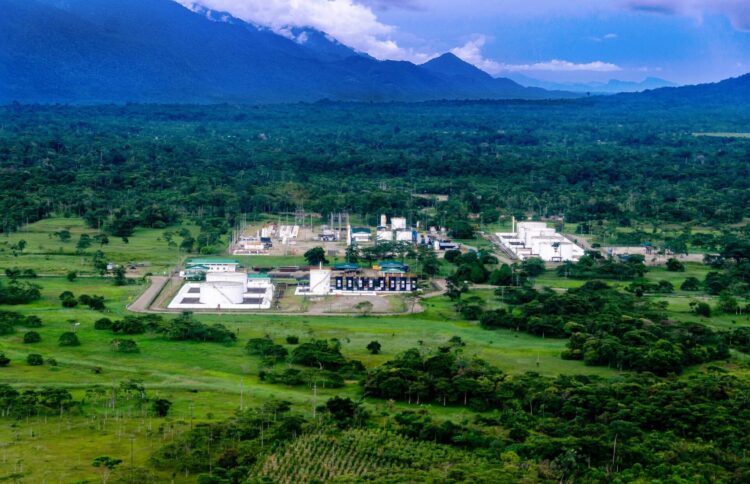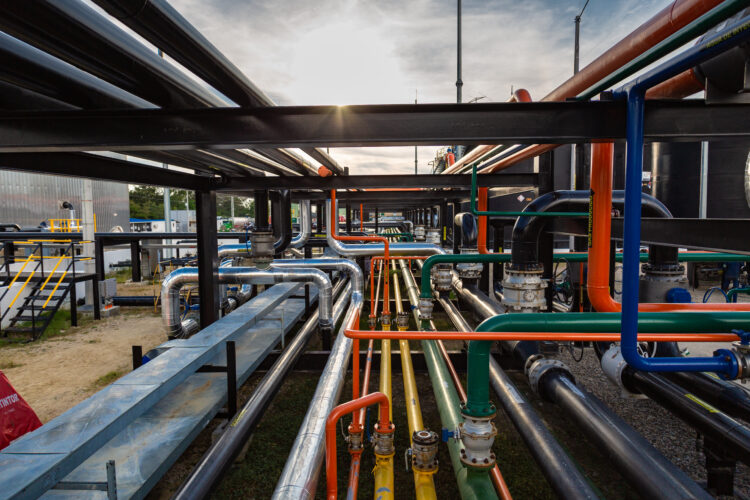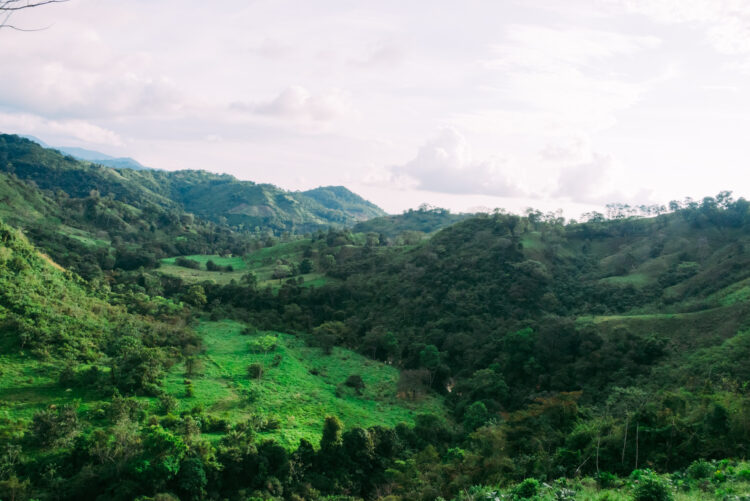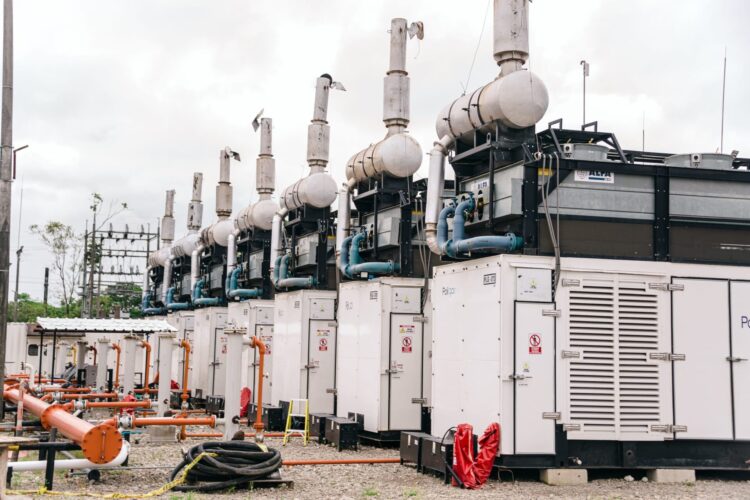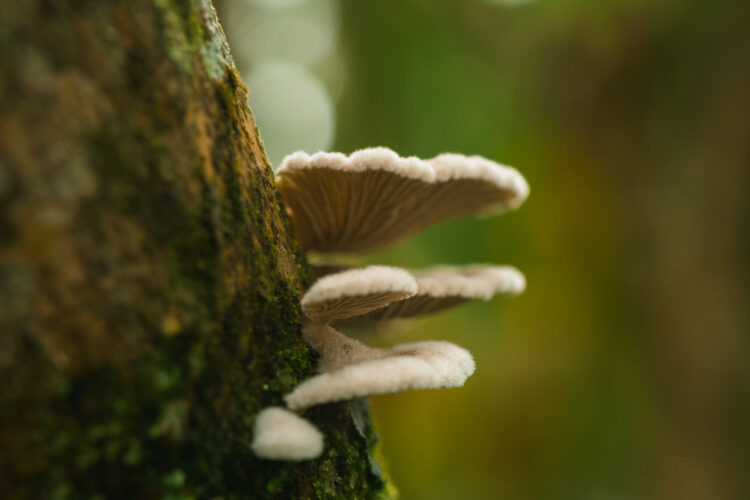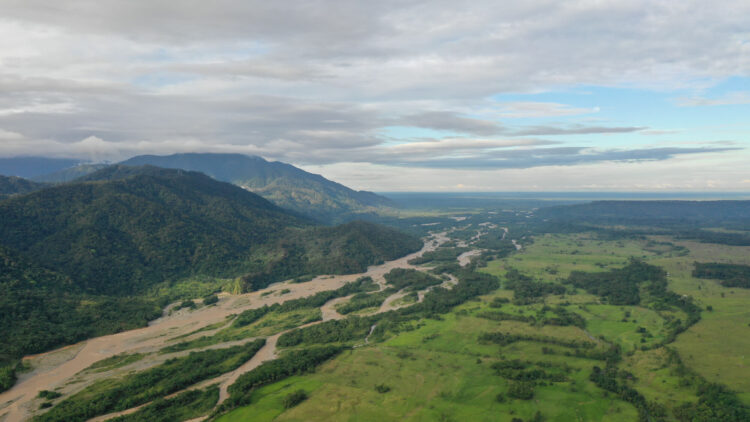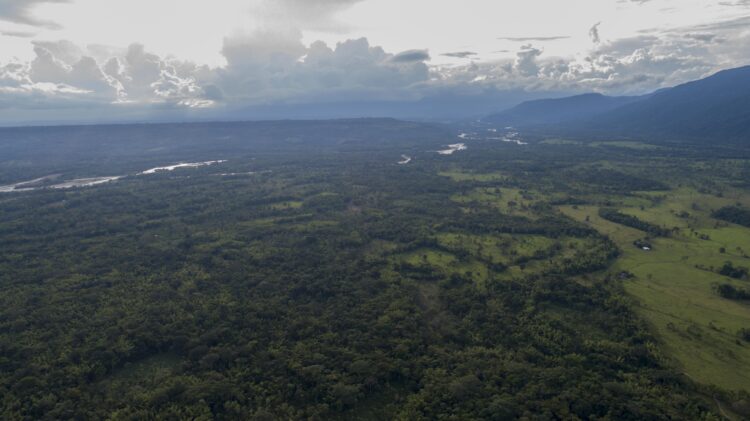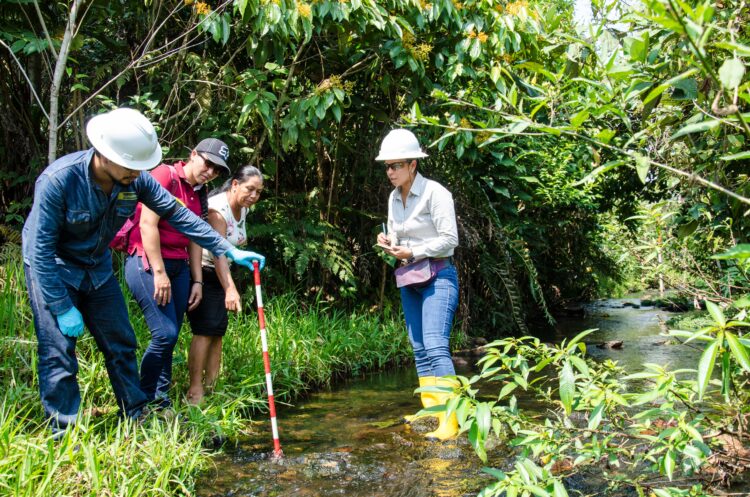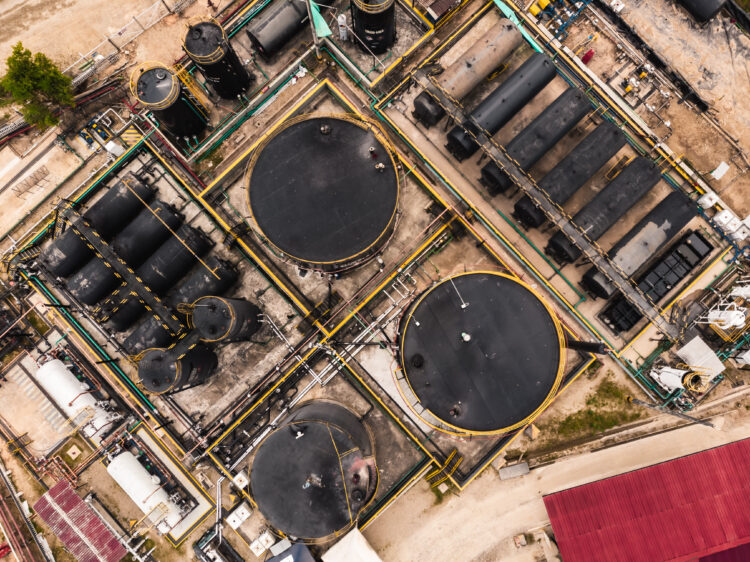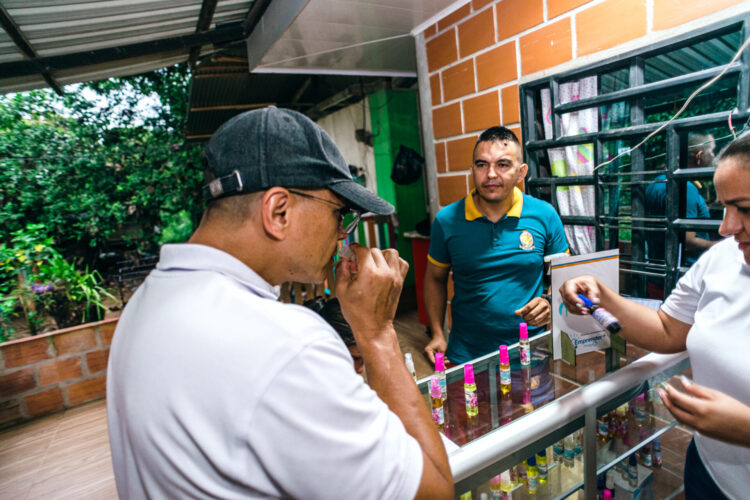Within the Acordionero Forestry Centre, Gran Tierra Energy installed residential-scale anaerobic biodigesters. Biodigesters are systems that break down organic materials, such as food waste, agricultural residues, animal manure and wastewater, through a biological process called anaerobic digestion.
In many rural Colombian villages, untreated wastewater flows through open sewers, creating serious health and environmental risks—especially during the rainy season. At the same time, limited access to propane forces many households to rely on firewood, contributing to deforestation, air pollution, and causing significant adverse health effects.
To tackle these dual challenges, GTE partnered with Antonio Nariño University to install 13 residential-scale anaerobic biodigesters in the Putumayo villages of Carmelita, Puerto Vega, and Remolinos. These systems treat wastewater organically and produce biogas for nearly 40 households and a school. This technology demonstrates how a thoughtful design can create lasting environmental, social, and economic impacts.
This initiative, which satisfies Colombia’s requirement that 1% of project budgets be invested into environmental initiatives, demonstrates how a thoughtful design can create lasting environmental, social, and economic impacts. Encouraged by the project’s success, plans are underway to expand it to additional municipalities.
